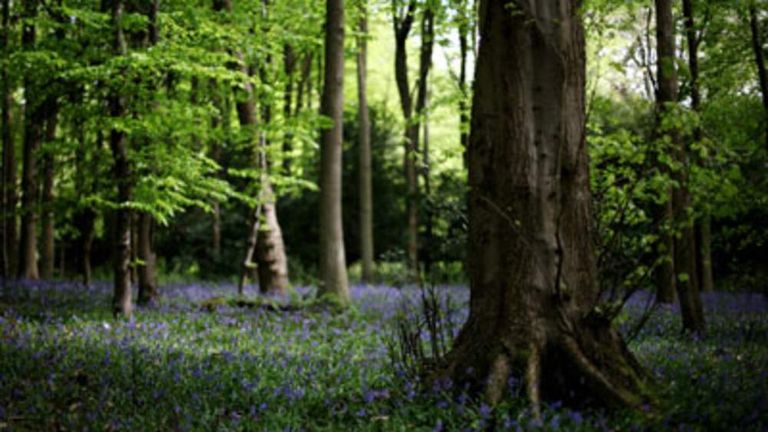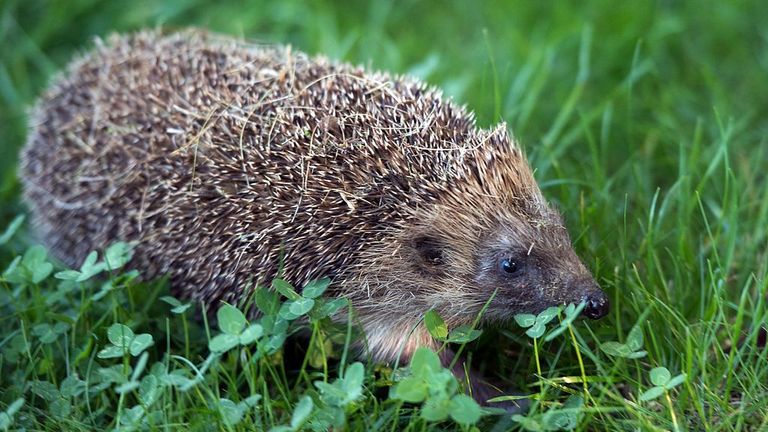One in seven species faces extinction from Great Britain
Intensive farming has been described as having an "overwhelmingly negative" impact on nature, according to a new report.
Wednesday 14 September 2016 07:02, UK
Around 15% of Britain's species are at risk of extinction on our shores, according to a new report.
An assessment of 8,000 species showed that 1,199 are at risk of disappearing from Great Britain.
The research also suggests that 56% of almost 4,000 studied land and freshwater species suffered declines in numbers or the areas where they are found between 1970 and 2013.
And that has continued into this century, with 53% of species witnessing falls between 2002 and 2013.
The study, which pools knowledge from 53 wildlife organisations, said one of the major factors was intensive agriculture's "overwhelmingly negative" impact on nature.
Other factors to blame include climate change, loss of habitat and urban sprawl.
Naturalist and TV presenter Sir David Attenborough said: "The natural world is in serious trouble and it needs our help as never before.
"The future of nature is under threat and we must work together, governments, conservationists, businesses and individuals, to help it.
"Millions of people in the UK care very passionately about nature and the environment and I believe that we can work together to turn around the fortunes of wildlife."
National Farmers' Union (NFU) vice president Guy Smith said: "Good husbandry, good animal welfare and good agronomy all play a major role in balancing the need to produce food using less.
"Above all we need to remember farming is here to provide one of the fundamental staples to life: food."
The report did find some reasons to be optimistic.
New wetland has been created and new woodland planted by conservation schemes, and sites such as old gravel works have also provided habitats for struggling species.
Wildlife-friendly farming schemes were also uncovered by the study, which last took place in 2013.
The re-introduction of species such as the pine marten and large blue butterfly have also been beneficial.




